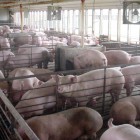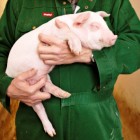Agribusiness
130 cases of fines to farmers for heavy use of antibiotics
|
Less than 1 percent of farmers have in the course of a year been fined, compared with the estimated level of 5-10 percent of farmers to be fined, when the Danish Parliament in the autumn 2010 decided to minimize the use of antibiotics to pigs by introducing a yellow scheme with fines to farmers for heavy use of antibiotics.
See the discussion in the Danish parliament on the decision of yellow scheme. All together since the introduction of yellow scheme there have been 130 cases of fines giving to farmers according to documents which Investigative Reporting Denmark has obtained, with names of all the farmers getting a fine. Excel-file with all data on 130 cases of yellow scheme
Original documents showing fines to farmers:
Yellow scheme in 2011
Yellow scheme in 2012
Yellow scheme in 2013
Yellow scheme in 2014
According to the Danish Veterinary and Food Administration only 0.3 to 0.8 pct of the farms received a yellow scheme in the years from 2011-2014, during which the system has been in effect. The documents also show only 2 farmers instead of an estimated 200 received an increased fine and surveillance and no one received a red scheme or had their number of pigs reduced. Authorities claim that this result is because of the success of the system.






